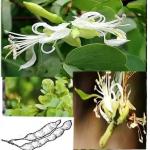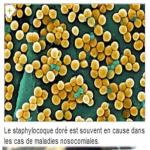Herbal Tea 272:Uterine Adherence Natural Solution Synechia of the Uterus
Intrauterine Adhesion Natural Solution Synechy of the Uterus to free the tissues that are attached and allow the woman to become pregnant. Excellent natural remedy for the sure cure of synechia.
Please reach us at http://wa.me//+22967546677
Click below to order clove oil
Book an appointment with lady feranmi on
100,00€ excl. tax - 100,00€ inc. tax
- Condition : new
- Supplier : Afrique-bio.
- Manufacturer : Afrique-bio
synechia of the uterus Asherman's syndrome intrauterine adhesion
Manifestation Of Adhesion, Uterine Synechia
Intrauterine adhesion may be asymptomatic to be discovered incidentally during repeated hysterography, hysteroscopy, or pathologic examination of the uterus for a cause of infertility or miscarriage. In these asymptomatic forms, synechiae are small.
If patients have intrauterine adhesion or uterine synechiae or Asherman syndrome, menstrual abnormalities such as hypomenorrhea (poor menses) and secondary amenorrhea (absence of menses) due to curettage or intrauterine aspiration are noted
Synechia results in female infertility or repeated miscarriages. Indeed, the presence of an intrauterine adhesion constitutes an obstacle preventing the ascent of spermatozoa. In addition, synechiae can be the cause of endometrial abnormalities making implantation of pregnancy impossible.
Adhesion often causes Hypofertility in women and obstetric conditions. Indeed, synechiae can be the cause of early abortion, recurrent late abortions, preterm delivery, fetal presentation during labor, abnormal placentation (placenta previa, placenta accreta)
In women with these menstrual abnormalities, secondary amenorrhea may result from widespread synechiae in the uterine cavity or adhesions.
or to very extensive synechiae in the uterine cavity; located at the level of the uterine isthmus; these synechiae trigger a neurocervical reflex which disturbs the functioning of the endometrium and causes secondary amenorrhea
Hypomenorrhea is caused by decreased functional endometrial surface area due to the presence of partial uterine synechiae.
Menorrhagia, metrorrhagia, and dysmenorrhea: These are rare manifestations of uterine synechiae (due to other associated lesions).
Please reach us at http://wa.me//+22967546677
Click below to order clove oil
Book an appointment with lady feranmi on
Uterine Synechiae, Risk Factors for Intrauterine Adhesion/
Likely Causes of Uterine Adhesion
Synechiae results from trauma to the uterine mucosa that destroys the basal layer of the uterus. Thus, An adhesion is consisting of a simple mucosal flange, easily lifted by the hysteroscope during diagnostic hysteroscopy. If untreated, this loose flange becomes fibrous, tough, thicker or thinner, and then muscular. Then the endometrium is no longer present. A uterus loses its endometrium if synechiae persist
Risk Factors for Synechia
The following may cause synechia:
Curettage or aspiration for spontaneous abortion or elective termination of pregnancy, postpartum o, r postpartum curettage.
Retention of a terminated pregnancy, placental retention after delivery, or after the termination of pregnancy.
Operative hysteroscopy with fibroid resection, polyp resection, uterine malformation cure, endarterectomy, cervical dilation aspiration.
Myomectomy, conization.
Marked atrophy of endometrium due to menopausal hormone deficiency.
Uterine infection, endometritis, genital tuberculosis, IUD infection.
Post pelvic radiation therapy for cancer.
Some factors contribute to the development of uterine synechia after endometrial trauma:
softened uterus: this occurs during advanced pregnancy; retention of a dead egg; postpartum (after delivery).
uterine evacuation technique with an increased risk when using a suction cannula, foam curette, or windowed curette, respectively.
the occurrence of infection after uterine evacuation.
having two overlying areas of injury to the endometrium, which promotes healing as a “fibrous bridge” by direct contact
Please reach us at http://wa.me//+22967546677
Click below to order clove oil
Book an appointment with lady feranmi on
Uterine synechiae, Diagnosis,
Diagnosis
The diagnosis of synechia should be considered and confirmed when its presence causes cycle problems or infertility. Synechia is not seen during a simple visit to the gynecologist. Often requires extensive testing such as
Ultrasonography of the pelvis
Often done first because it is painless and noninvasive, it may show an intrauterine image that suggests a flange, sometimes with retention of blood in the uterus (hematometra).
Hysterosalpingography
When evaluating tube patency for infertility evaluation or when evaluating uterine cavity morphology for recurrent miscarriage, synechiae is suggested by the presence of a flanged or punched-out intrauterine image connecting the two sides of the endometrium. It may be more or less extensive or even completely prevent the opacification of the cavity by the contrast agent.
Diagnostic Hysteroscopy
One hysteroscopy is the gold standard for detecting synechia of the uterus. It is used to make the diagnosis by directly visualizing the synechiae. Hysteroscopy can accurately assess the position, extent, quality of the endometrium remaining in the uterine cavity, and the patency of the tubular openings. In the event of a favorable prognosis, this evaluation makes it possible to establish the operative indication when surgical treatment is envisaged
Please reach us at http://wa.me//+22967546677
Click below to order clove oil
Book an appointment with lady feranmi on
Add a comment











